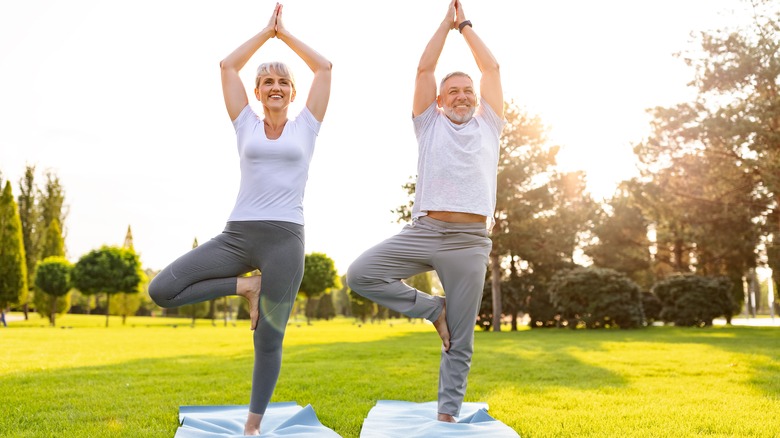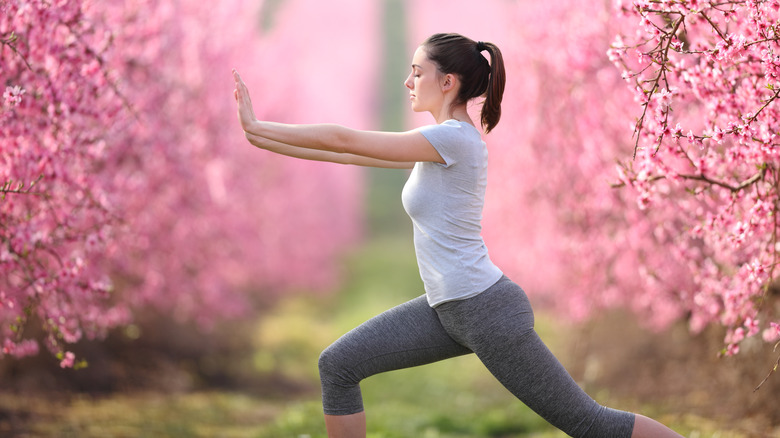The Correlation Between Standing On One Leg And Your Lifespan
The average human life expectancy was 32 years in 1900, but it has risen significantly to 71 years as of 2021. This gap is the result of improved living standards, public health, and medicine. And, while researchers and medical professionals have identified habits that make you more likely to die early, they've also discovered a correlation between keeping your balance on one leg and living for longer than average.
The findings were published in the British Journal of Sports Medicine in June 2022 by a collaboration of experts from the United States, Brazil, United Kingdom, Finland, and Australia. The researchers noted that people generally experience a decrease in flexibility and muscle strength as they age, but the ability to keep their balance starts to decline rather quickly when they get into their 50s. With that in mind, between 2009 and 2020, they monitored the balance and health of 1,702 participants aged 51 to 75 for an average of seven years.
About 5% of those aged 51 to 55 were unable to stand on one leg for 10 seconds, while 54% of those aged 71 to 75 failed the balance test. In total, 20.5% of the participants failed, and of those, 17.5% died during the monitoring period — compared to 4.5% deaths among those who passed the test. After taking pre-existing conditions, age, and sex into consideration, the researchers determined that people who can't stand on one leg for 10 seconds have an 84% increased risk of death within 10 years from any cause.
The balance test could change routine health checkups
While this research was more of an observational study than a cause and effect project, it highlights the impact of practicing a healthy lifestyle on the body. Generally, the study participants who failed to balance on one leg for 10 seconds were in poor health compared to those who passed. More of them were overweight and/or had unhealthy blood fat profiles, heart disease, and high blood pressure. Additionally, 38% had type 2 diabetes compared to just 13% of those who passed.
Because of the stark findings, though, the researchers believe that it can be a practical tool for physicians to use during regular health checkups of people aged 50 and older. In a University of Bristol press release, lead researcher and author Dr. Claudio Gil Araújo, a representative from Clinimex Exercise Medicine Clinic in Rio de Janeiro, said, "The 10 second balance test provides rapid and objective feedback for the patient and health professionals regarding static balance and that the test adds useful information regarding mortality risk in middle-aged and older men and women."
Fortunately, Araújo noted that people can do specific exercises to improve their balance, which is something he uses in his medically supervised exercise program. However, there's no evidence yet that improving balance can extend lifespan.

